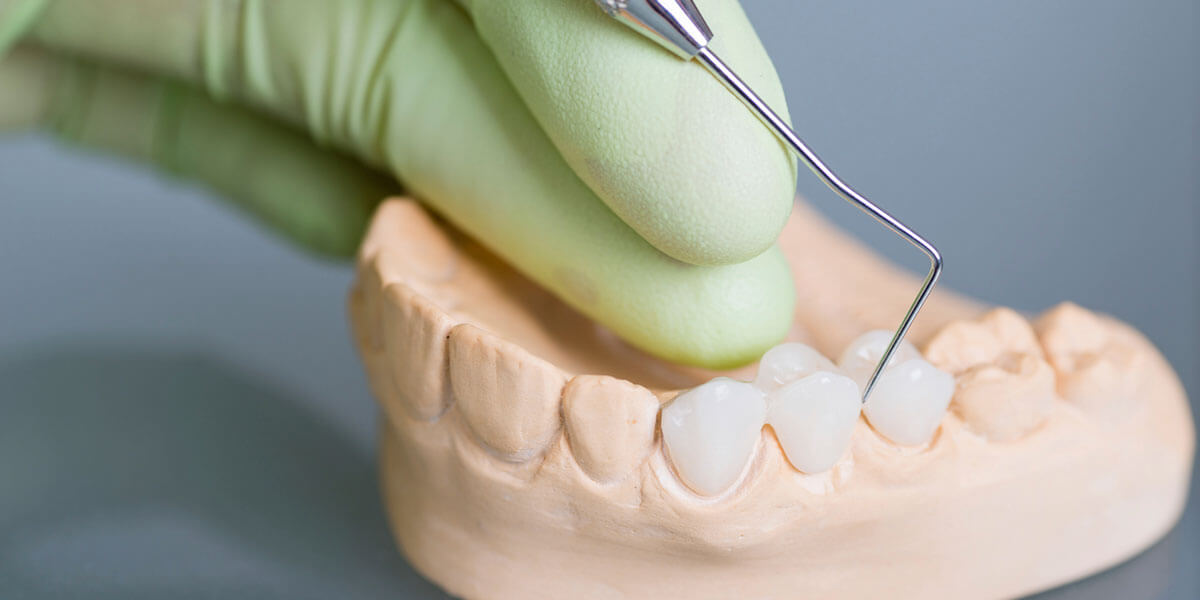DENTAL BRIDGES

Missing one or more teeth is common for many people.
A bridge consists of two crowns called abutments located on the ends of the bridge and anchors onto your natural teeth. In between those two crowns are a false tooth or teeth that are called pontics. Dr. Mekawy offers dental bridges at Island Smile Dental Group because they provide the following benefits: The specific area of your jaw bone where your missing tooth should be can begin to atrophy resulting in possibly losing facial structure.
There are four main types of dental bridges:
Traditional Bridge
This is the most common type of dental bridge. The existing teeth are crowned with one or more pontics between and held in place by the crowned abutments. The crowns are cemented onto the teeth adjacent to the missing teeth to create a support structure or “bridge” for the missing teeth.
Cantilever Bridge
This type of bridge is similar to a traditional bridge, except that the structure is supported on only one side instead of both sides. This can cause the restoration to act as a “lever” and may create additional stress on the supporting tooth, causing it to be more likely to loosen or fracture.
Implant Supported Bridge
Instead of using existing teeth to support a bridge, a dental implant may be substituted to provide support for one or both sides of a dental bridge. This is a popular option that can provide a very secure restoration. This solution is particularly helpful when there are several adjacent missing teeth.
Maryland Bridge
This type of bridge is supported by a metal structure which is cemented onto the back of existing teeth. While not as strong as a traditional bridge, it can preserve the tooth structure of the adjacent teeth by avoiding the use of crowns for the abutments. It may not stay in place when heavy forces are placed on the restoration (such as biting and chewing) and does add pressure to the supporting teeth.
What to Expect
During your first visit, Dr. Mekawy will use a local anesthetic at the procedure site to ensure you have a pain free experience. Then she will reshape and resize the teeth that will serve as abutments and accommodate the crowns that hold the false teeth in place. The last step during this visit is to take an impression of your prepared teeth to send to the dental laboratory. Before leaving, Dr. Mekawy will install a temporary bridge to protect your teeth and prevent any sensitivity. When your new bridge is ready, you will return to the office to have Dr. Mekawy either cement your fixed bridge over the prepared teeth or properly adjust your removable bridge to fit comfortably.
Bridges are not a suitable treatment for everyone. You must be in good oral health with healthy teeth on either side of the missing teeth to provide strong anchor points for the crowns to sit on. You also need a solid enough bone structure to support a dental implant. To maintain the bridge’s condition, it is important that you demonstrate that you practice good oral hygiene to maintain the bridge’s condition.
To determine if a dental bridge is a good solution for you, book your appointment today by calling the practice at 516-520-5858 or emailing our office to request an appointment.